#WritersSurvivalTips with Anna Jordan
We hope that this site is a robust and useful (and free!) tool for anyone interested in writing for the stage. As we navigate these…

I wasn’t supposed to write about this topic. Suz Bell (the brilliant Dramaturg at the Royal Exchange) originally asked for an article on turning big ideas into the twists and turns of a plotted story. The truth is, I haven’t known how to offer advice on something so practical when I’ve been battling some bigger existential questions.
Over the last few years, I’ve fundamentally fallen out of love with theatre, with writing. Like many writers I know, the dream of going full-time didn’t quite match the reality, and I now spend a lot of time fantasising about retraining as a gynaecologist, or a human rights lawyer, or buying a remote farm and building houses for all of my friends (my friends, in turn, worry this farm could escalate very quickly from “communal living” to fully-fledged cult – “But it’ll be a nice cult!” I protest).
All the fears and anxieties I had prior to the pandemic were brought into sharper focus during the lockdowns (wasn’t everything??), which I spent very alone but in perpetual overwork. There were cancelled projects. Salvaged projects that needed to be dragged uphill to production. Deep loneliness. A decimated industry. Friends, family, a partner, in different parts of the world, all physically isolated themselves, all battling their own personal griefs. World events that had us all questioning the inherent value of theatre, the role of art-making, in the face of widespread political protest, climate crisis, a global pandemic, war. On top of this, I struggle with some complex mental health issues. The most debilitating of these is PMDD, a monthly depression and brain fog so heavy it’s sometimes (to be frank) difficult to comprehend living another day, let alone opening up the laptop to write.
In the absence of joy and motivation, I’ve allowed bitterness, cynicism, anger, fear and doubt to creep in. I used to believe in theatre’s capacity to change lives. Not in giant barnstorming ways, but in the way that one audience member in a hundred might feel seen, heard, known; in the way that all forms of art – books, songs, poetry, video games, movies, television box sets – can genuinely improve the experience of living. In the immortal words of Star Trek: Voyager (and now Station Eleven!), humans make and consume art because “Survival [alone] is insufficient.” I want desperately to believe that again.
These past couple of weeks, I’ve had Covid, I’m trialling some medication, and I’m nursing a very broken heart. All of this has made playwriting impossible, so my office-mate, Lucy Sierra (fantastic theatre designer, instagram here) loaded me up with self-help books specifically written for anxious creatives in anxious times. (Clearly, if we have whole sub-genre of motivational literature, there must be plenty of us out there….!) . In the mix, I’ve also been having some honest conversations with other theatre-mates, who have all shared their own personal tips and tricks.
So… here are nine things I’ve collected that I’m also (full disclosure) currently trying and testing myself. Why nine? Basically, because I couldn’t find ten. But I also think there’s something beautiful in this being an incomplete, almost-certainly imperfect list.
Brave writer/maker/artist (circle your preferred term), if you’ve found yourself in a similar place… out of love with theatre, with writing, with the act of creativity itself… I hope these nine things (and the GIFS) help you gently back to this thing you once loved, and the stories you still want to tell.
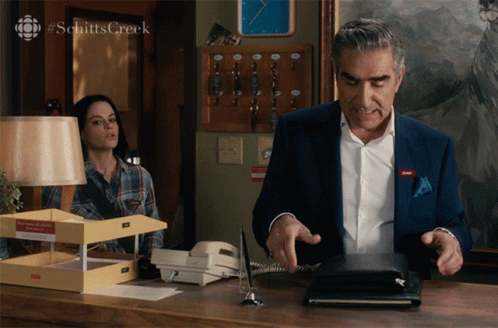
I know all the self-help articles say this one, but for good reason. Burn out is real. Long Covid is real. Sustained stress, trauma, grief and depression does very real and debilitating things to the mind and to the body. And if you’re juggling multiple projects, with different demands, or juggling your creative work around other part-time or full-time work, you’re probably not taking enough time off.
My friend, Liz Arday (who directs and produces new work around General Managing Vaults Festival) often reminds me that if we had typical 9 to 5 jobs, we would be entitled to 28 full days off, and every weekend. That’s 132 full days off I should have had in 2021. I think I took… ten?
So try to find these days. And protect them. Do not fill this precious recovery time with other work, worry and stress. On these days, the priority is to feel good. Read, swim, sleep, see friends, make new friends, play in the mud with your children, go to a gig, dance, travel, be in nature, learn a new skill. Engage the other parts of you that have nothing to do with writing.
Maybe you need a sustained year (or two) out of the arts. Not the the kind where a choice was made for you (i.e the last two years), but an active choice to distance yourself from an industry that often tries its best, but isn’t known for fairness, good communication, reasonable hours, appropriate pay, or regular reward. I have a few friends who used the pandemic to retrain and haven’t looked back. They’re happier and healthier outside of the creative industries, and if this is your path, I say go for it.
So whether it’s a short break, or a long one, in the time when you’re not writing, allow yourself to remember that that there is life outside of theatre… just not to the extent that you drown in your own irrelevance. Try to land somewhere between crippling pressure on yourself and grim nihilism. Somewhere between the two. That’s the sweet spot.
In striving to be storytellers, we often forget to be passionate fans. In my Covidy-heartbreaky-medical-trial daze, one of the few things I’ve been able to manage is watching TV. Whole boxsets of it.
I committed to Adam Kay’s This Is Going to Hurt, which I thought I’d quickly grasped and understood, and then there was Episode 6 (SPOILERS)… Episode 6. It was so unexpected, so perfect, so painful. I wanted to reach in through the television screen and hold Ambika Mod’s, Shruti. With just a few lines of television dialogue, she stopped being a fictional character for me – I knew her – and I wanted to change everything about the system that failed her. I wanted to keep her alive.
Someone’s writing did that to me. F**k, that’s amazing.
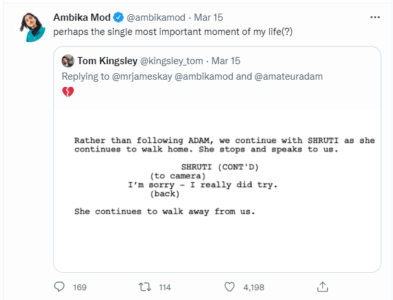
The other boxset I devoured was Station Eleven. My God… Station Eleven.
Somewhere between the first “I remember damage” and the last, I began to grieve. I sobbed. I walked around afterwards in a daze that had nothing to do with covid, heartbreak or medication. I bought the book. I ate that up too. Then I put the series on again and fast-forwarded to all my favourite bits (a silent and overgrown Chicago, Miranda and her visiting spaceman, Jeevan and Frank doing anything really). The whole experience broke me so badly, I felt ready to heal again.
Someone’s writing did that to me. F**k, that’s amazing.
This is playwright, Anna Jordan. This is playwright, Chris Bush. Look at these beautiful faces. Both are brilliant people, brilliant writers, and yes, sometimes they struggle with writing too.
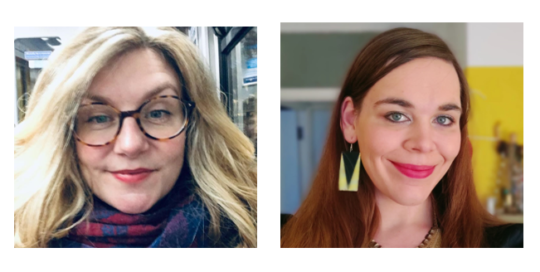
In the last 24 hours, I’ve been lucky enough to cuddle them both. I was honest with them about some of the difficulties I was facing, and they met that honesty with honesty. And then you don’t feel so deficient, odd, or alone. It’s easier to accept that is all genuinely part of the gig, not the universe telling you to give up. That all writers, at certain points, find it difficult to maintain a balance between the heavy demands of real life and the imaginary worlds they’re trying to write into existence.
Community is important in an industry that so often pits us against each other. Nurture your theatre-mates. Enjoy them. Celebrate them. Lean on them. Be honest with them. Offer your support in turn.
(And while we’re here, I highly recommend Anna’s own Twitter list of tips and tricks, which got me out of a tough bit of writers block last week… her whole Twitter feed is generally amazing!)
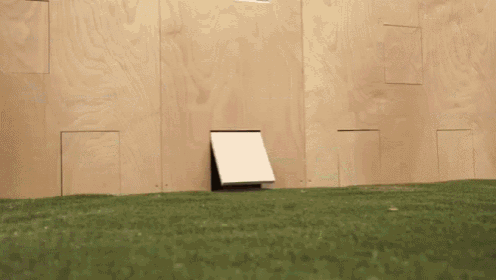
If you usually write at home, take your notebook to a cafe or a park or a library. Allow the energy of a new space to revitalise you.
Maybe, like me, you thought for several years that you were actually an introvert and then realised after three (tortured) years working from home in pyjamas…oh, no… textbook extrovert. I now have a desk in a creative co-working space. I share this space with roughly twenty-five other writers, makers and artists. It’s just so nice to have a quick conversation on a writing break; to see the progress they’re making on a portrait commission, or a piece of jewellery, or illustrations for a children’s book. I love having other people’s mess, and energy, and creative processes around me.
Maybe it’s time to change mediums or format. If you write on your laptop, switch to paper and pen for a few hours. If you plan your stories with post-it notes, try plotting in Excel, or drawing on a whiteboard or giant piece of paper.
Maybe you need to get physical. Borrow a room with a big mirror and act out your play. Gather a group of friends and ask them to read it. Consider a co-write with a theatre-mate. If other collaborators are already on board, take them out for a coffee and chat through the possibilities of your work. Often an hour inside a director or a designer’s brain is enough to completely reinvigorate my writing day.
Today, I went to a workshop at a director’s house, and the director’s cat had just had kittens, and before we did some work, I spent fifteen minutes playing with the kittens. We then solved quite a few plot holes. I’m not saying this is the ultimate solution, or that every theatre meeting, workshop and residency should include dedicated-cat-time (DCT)… but I’m not not saying this either.

In November/December, I found myself in a bottleneck of rescheduled work. The deadlines were so tight, I had to launch straight into writing with no time to play. By “play” I mean gathering inspiration, finding images, getting lost in a YouTube deep dive, reading widely, dreaming about the possibilities, testing these possibilities, drowning in the whole exciting mess of it, and before any attempt is made to narrow, find and categorise the work.
I was bypassing all of this – the fun bit! – because it seemed so inefficient… if it’s not writing, it’s not writing, right? Wrong. It’s all just so so so important. Very little of our job is actually writing. Most of it is problem-solving, blue-sky thinking… and it’s hard for your brain to make these abstract connections if you haven’t fed it the inspiration it needs.
We all need to get better at educating producers, commissioners and funders that “play time” “dreaming time” or “feeding time”(however you want to look at it) is an essential part of a work’s development.
And we all need to get better at reminding ourselves of this too!
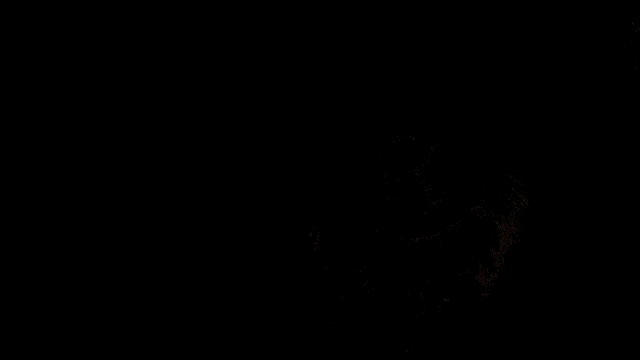
Read a book that has nothing to do with research for your play. If you’re not enjoying it in the first 15 pages, put it down, find another one. Go to an art-gallery. Go to a music gig. A live poetry reading. The symphony. Buy a book of poetry at random. Or a graphic novel. Pour yourself a glass of wine, turn the lights off, turn on a lamp, light some candles and play an album in full.
When I get particularly despondent, I buy the cheapest same-day ticket I can find to a blockbuster musical. At this point, I’ve seen most of them three or four times. More often than not, I go to The Lion King. I know Rafiki is going to open the show, I know in about five minutes a big elephant is going to come up the aisle, and I know that adults and children will look at these things with the same wonderment with which adults and children have been watching this show show since it first opened in 1997. I suspend my cynicism, I allow theatre magic, Elton John and Lebo M to take me on a journey. I love The Lion King musical. I love it.
Last night, Chris Bush (after the cuddle and the cry) asked if I wanted to see a comedy show. I’d never actually seen one live before. Admittedly, it was still in a theatre, and admittedly, about Covid decimating hopes and dreams… but still… a wee bit of detachment was helpful. And it was just was so so so good to laugh.
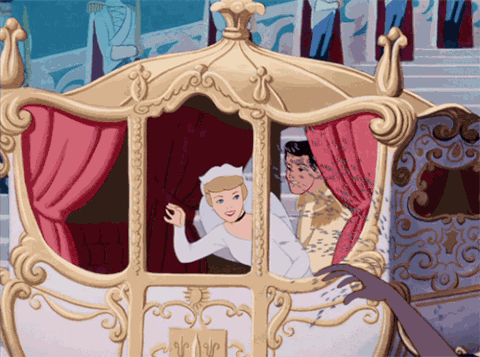
This may seem like the total opposite of finishing your projects, but I promise you, it works.
Sometimes we hit roadblocks with our stories. Sometimes we’ve tried to fix them for so long, that we’re actively making them worse. So cheat on your project with another one. Allow the honeymoon phase of a new work to remind you that yes, you can do this, and yes, you are good at this, and yes, it can be joyful.
Don’t give up on your existing projects though. If you want to be a professional writer, the capacity to commit to and finish a work is all too important. But do allow the rush of new ideas to help you through the many years (and many drafts) it can take to drive a script through to production.

In the age of social media, and everyone having a “hot take,” it can feel overwhelming, extremely exposing, to offer a piece of writing (or any art) up for public consumption. I did some therapy last year to help me through a theatre opening, and the therapist (bless her) tried to reassure me that the critical voices were mostly in my head. “No,” I said. “Those critical voices are on Twitter, theatre blogs and national newspapers…”
We all talk about art being subjective, but there’s always a secret part of you that wants, desperately, for every imagination in that room to be engaged by your writing, and for them all to reach the same conclusion that your play was worth being locked in a dark room for. But that’s just not the case.
You cannot write for everyone. It’s impossible. So if the thought of making art for mass consumption is overwhelming, focus instead on making a few people happy. Maybe even one person. Vinay Patel talks often (and beautifully) about how there is is always someone out there who needs your story. Imagine that person. Make art for them.
Austin Kleon, who wrote ‘Steal Like an Artist’, and ‘Keep Going,’ advocates for treating art “like a gift.” He says, and I quote, “If you’re bummed out and hating your work, pick somebody special in your life and make something for them… See how it feels. See whether it puts you in a better place.”
And then there’s the Anne Washburn inversion of this idea… that maybe the one person is actually you. This isn’t as narcissistic as it may seem (!). If you buy into the idea that there is some universality to human experience, that patterns of joy, trauma, and pain echo, not just across time, but across different cultures, religions, backgrounds…. in creating something that you, and only you, desperately want to exist, it will almost certainly find others who need it too.

I’m a huge fan of lists. Lists are a fantastic way to both organise a productive day and to inject some joy into it.
Try to make small practical ‘To Do’ lists full of achievable goals and free from value judgements. Today, for example, I said I would come up with three new ideas for a problem area in a film, and that I would write 1000 words of this article, and that I would spend approximately ten minutes looking for GIFs. I did not say that I would fix or solve the film, or land on the right idea, and I did not say that I would write 1000 good words, and or that I would finish this article. But I did come up with three ideas, and I did write 1000 words. And I found quite a few GIFs.
And then, sometimes, you can make lists – like this whole article – with arbitrary numbers, but joyful, soul-clarifying content. It could be anything really, but here are a few suggestions:
I won’t dictate these. They’re your lists to create and answer. But I hope in the act of list-making, you discover some joy. Enough to get you through a morning, or the first difficult task of a day.
Brave writer/maker/artist, you not only deserve these small moments of joy… I suspect they’re essential to the creative process.
Good luck x
Kendall Feaver
Kendall is an Australian playwright and screenwriter, based between London and Sydney. Kendall’s writing brings untold stories into focus, finding the humour and the humanity in ethically knotty subjects. She’s also a diehard musical theatre fan.
Theatre includes: UNTITLED (commission, National Theatre); YOLK (commission, Manhattan Theatre Club); GODMONEY (commission, Almeida); UNTITLED (commission, Belvoir Street Theatre); WHEREVER SHE WANDERS (Griffin Theatre Company, July 2021); MY BRILLIANT CAREER (Belvoir Street Theatre, 2020); THE ALMIGHTY SOMETIMES (Manchester Royal Exchange, 2018).
Screen includes: UNTITLED (commission, Pathé)
Fellowships: Almeida Theatre Genesis Writers Group (2019/20); Phillip Parsons Fellow, Belvoir Street Theatre (2019/20); Bush Theatre Attachment (2018); National Theatre Studio Attachment (2018); National Theatre Musical Theatre Group (2017/18); National Theatre Studio Attachment (2017).
Awards: UK Theatre Award for Best New Play (2019); Nick Enright Prize for Playwriting (2019); Victorian Premier’s Prize for Playwriting (2019), Judges Award, Bruntwood Prize for Playwriting (2015)